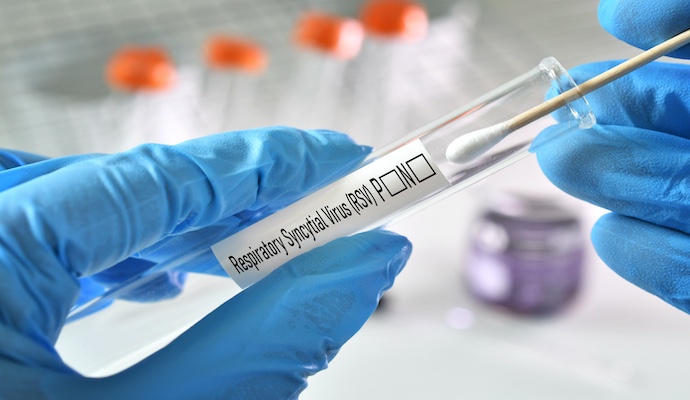CDC Urges Rationing of New Antibody Shot for Infant RSV Protection
CDC advises rationing Beyfortus due to high demand, prioritizing high-risk infants, and suggests Synagis for eligible cases.

Source: Adobe Stock
- In response to the overwhelming demand for the newly approved antibody shot, Beyfortus, designed to safeguard newborns from respiratory syncytial virus (RSV), the Centers for Disease Control and Prevention (CDC) has issued guidelines for physicians to ration its distribution. This unexpected surge in demand has prompted the CDC to prioritize infants at a higher risk of severe RSV infection by recommending the use of the 100 mg dose. Synagis, an older RSV antibody, is now being suggested over Beyfortus for eligible infants.
The CDC's decision comes considering the limited supply of Beyfortus, a product jointly marketed by Sanofi and AstraZeneca. Beyfortus secured approval in the United States in July 2023, ahead of the anticipated RSV season that typically emerges in the fall. The overwhelming demand for the 100 mg dose, intended for infants weighing at least 11 lbs, caught Sanofi off guard despite their aggressive supply plans.
Beyfortus offers physicians an option to protect all infants within a specific age range from RSV, a respiratory disease that commonly affects children, albeit typically in a mild form. Unlike the existing preventive option, Synagis, restricted to high-risk newborns, the CDC now recommends Beyfortus for infants under eight months old entering their first RSV season and children aged 8–19 months at an increased risk of severe disease through their second season.
The healthcare community has expressed concerns over RSV, with experts warning of a potential tripledemic this year, as seen in the previous season when RSV cases coincided with COVID-19 and influenza outbreaks. In preparation for this fall, Sanofi initiated an educational campaign to raise awareness about RSV and Beyfortus as a novel preventive option. Similarly, GSK and Pfizer recently gained FDA approval for RSV vaccines, Arexy and Abrysvo, respectively, and have undertaken similar awareness campaigns in anticipation of heightened demand.
Despite Sanofi's robust supply plan for Beyfortus, the unexpectedly high demand has led the company to work with AstraZeneca, responsible for manufacturing, to expand production capacity.
Additionally, the CDC has advised pregnant individuals to receive Pfizer's RSV vaccine Abrysvo, recently approved for maternal use to protect newborns. The agency's clinical guidance suggests that pregnant people between 32 and 36 weeks of gestation receive the vaccine from September through January to ensure protection during the peak RSV transmission period.
